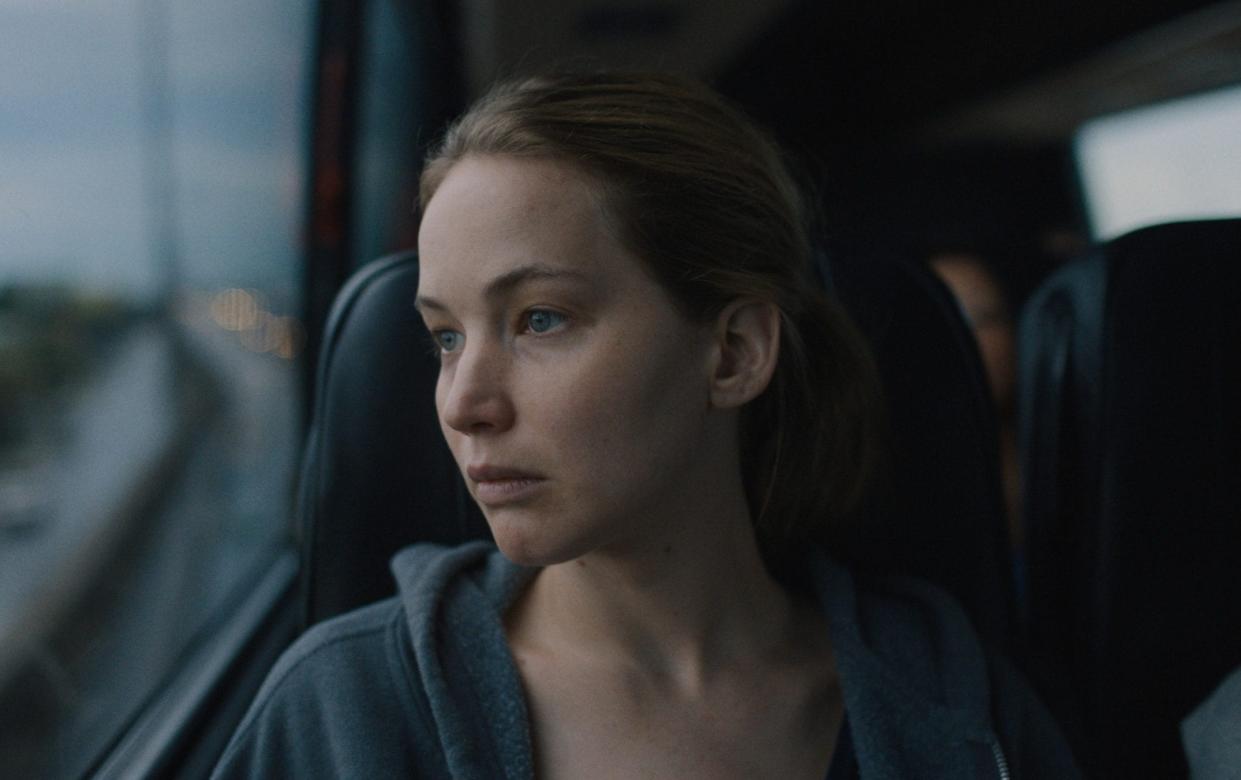Causeway, review: Jennifer Lawrence is shatteringly good as a psychologically scarred veteran

Causeway is an excellent, moving, determinedly low-key slice of US indie cinema that could easily slip under the radar if it weren’t for Jennifer Lawrence, essaying her least glamorous role since Winter’s Bone in 2010. She plays a soldier called Lynsey, who must re-adapt to civilian life while shouldering a drastic case of PTSD, after a bomb went off and killed the comrade next to her.
Physically shaky, she’s psychologically scarred on a number of levels, and taking heavy meds to balance out her emotional state. While on indefinite reprieve from duty, she drifts through her hometown, New Orleans, with a sense of futility and woozy disconnectedness.
Lawrence is unshowily great in this part – there’s not an ounce of showboating or reaching for audience pity. Lynsey has a tricky relationship with her mother, a hard-drinking tough broad played by the brilliant stage actress Linda Emond, who expects her to arrive a day after she does and hasn’t cleaned up: the kind of wrong footing on which, we sense, these two frequently tend to land. Jayne Houdyshell, a Tony winner for The Humans who reprised that part beautifully on screen, is another member of the ensemble plucked from Broadway fame by Lila Neugebauer, in her feature directing debut.
The film is spare, sensitive and unadorned, saving one of the most beautiful close-ups Lawrence has ever had for its very last shot. Anyone who remembers Oren Moverman’s The Messenger (2009), which scored Oscar nominations for Woody Harrelson and the script, may feel they’ve wandered back into that vision of America a little – a hushed, strangely empty landscape with loners going about their business.
It’s when two of them are drawn to each other, mutually well aware of being broken people, that Neugebauer’s film gently ignites. Lynsey meets James (Atlanta’s Brian Tyree Henry) because she needs a truck repaired; they hang out, talk over beers, trade some confidences. He perhaps has the wrong idea, until she mentions she dates women, but this doesn’t stop a friendship sort of fumbling its way up between them. She remembers his sister from way back, too, but he goes awfully quiet when that comes up.
James has a prosthetic leg, which we only see once towards the end – a refreshing departure from the standard rule that disabilities have to be flagged and overacted from minute one. The story of his maiming, and an even bigger wound beneath it, could have felt like a dramatic strip-tease in a lesser film, but Henry won’t let that happen.
He takes astonishing, calm control over that scene – indeed, over all his scenes – and crafts a character whose steely barfly humour and inward gaze keep dreadful demons at bay. It’s next-level acting, and there’s no way it can be allowed to pass through awards season unrecognised.
In select cinemas and on Apple TV+ on November 4

 Yahoo News
Yahoo News 
